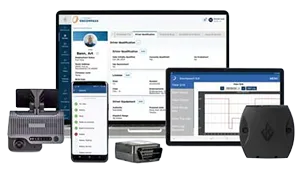Employers won’t be able to accept expired documents for Form I-9
March 26, 2022
As of May 1, 2022, employers may no longer accept expired documents as proof of identity for the Form I-9.
The Department of Homeland Security (DHS) is ending its temporary policy that allowed employers to accept expired List B documents (e.g., a driver’s license), which are used as proof of identity when filling out the Form I-9 during the hiring process.
During the COVID-19 pandemic, many individuals found it difficult to renew these documents. Now that the authorities issuing the documents have reopened, or provided an alternative to in-person renewal of documents, the agency is ending its policy of allowing employers to accept expired documents as proof of identity.
Updating forms if expired documents were used
The DHS enacted its temporary policy regarding expired documents on May 1, 2020. If an employee’s Form I-9 was completed between May 1, 2020, and April 30, 2022, and an employee presented an expired List B document, employers to need to update the Form I-9 by July 31, 2022.
The DHS has provided guidance for updating the form. If an employee is still employed, an employer needs to:
- Have the employee provide an unexpired document that establishes identity. Employees may present the renewed List B document, a different List B document, or a document from List A (e.g., a U.S. Passport).
- Update the “Additional Information” field of Section 2. In the “Additional Information” field, the employer enters the document title, issuing authority, number, and expiration date.
- Initial and date the change. The employer’s initials and the date are entered in the Additional Information section.
If the employee is no longer employed, no action is needed.
Auto-extended documents
If an employee presented a List B document that was auto extended by the issuing authority, so it was unexpired when presented, no action is required.
J. J. Keller's FREE SafetyClicks™ e-newsletters bring quick-read transportation, industrial & manufacturing, and human resources compliance news right to your inbox.
March 26, 2022
Author{not populated}
TypeIndustry News
Industries{not populated}
Related TopicsI-9s
Governing Bodies{not populated}
Citations{not populated}



